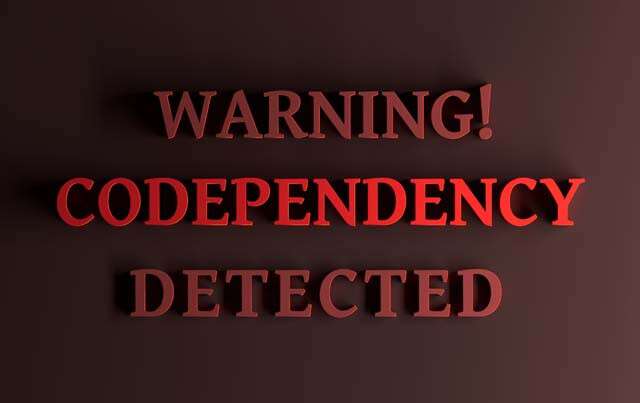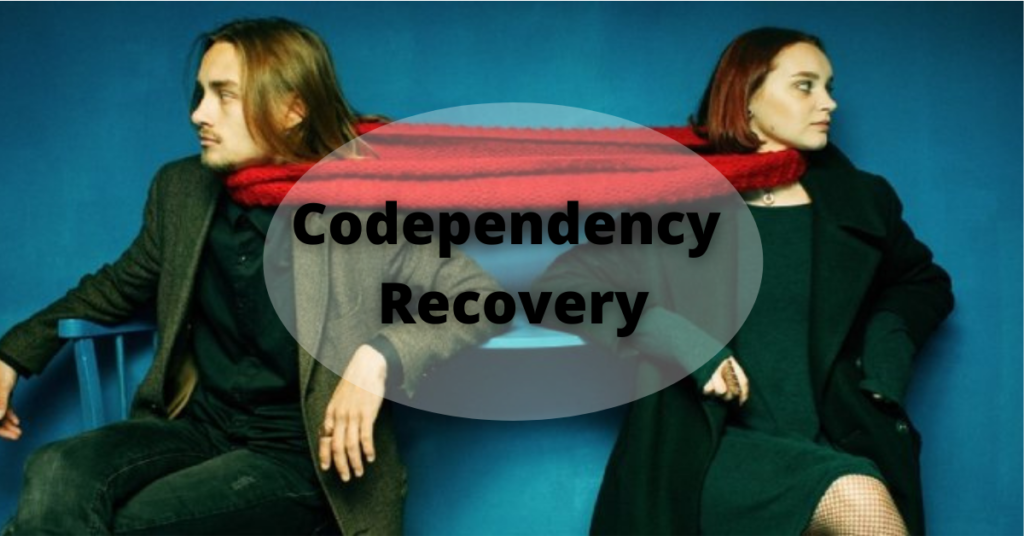Codependency recovery is an important part of mental health care. Codependency can be defined as a person who relies on other people for their emotional needs, has low self-esteem, and is submissive to others. This blog post will cover the following topics: symptoms, how it develops, consequences of codependency, and ways to treat them.
Contents
What Is Co-Dependency?
 Codependency is a term first used in the 1980s to describe a dysfunctional relationship dynamic where one individual supports or enables another person’s addiction, poor mental health, immaturity, irresponsibility, or under-achievement. The word codependency is also frequently applied to relationships where people are affected by someone else’s mood disorders such as depression and anxiety.
Codependency is a term first used in the 1980s to describe a dysfunctional relationship dynamic where one individual supports or enables another person’s addiction, poor mental health, immaturity, irresponsibility, or under-achievement. The word codependency is also frequently applied to relationships where people are affected by someone else’s mood disorders such as depression and anxiety.
This can be seen in some caretaker roles that allow others to lean on them so much they neglect their own needs and well-being (a more extreme example of this would be an adult child caring for elderly parents).
What Is Codependency Recovery?

Codependency recovery is the process of learning to take responsibility for one’s own needs while being connected with others, rather than taking care of them. It is not about fixing someone else; it is about recognizing when you are in a codependent situation and working towards healthier boundaries. In order to recover from codependency, it is important to become aware of the signs and symptoms of codependency as well as the triggers that can cause you to fall back into unhealthy patterns.
Tips For Codependency Recovery

These are some tips for codependency recovery:
Know About Signs and Symptoms
This is the step where you will learn about the signs and symptoms of codependency. This includes understanding that codependent behaviors are not healthy, learning to identify when you are in a codependent situation, and recognizing your personal triggers.
Create Boundaries
Codependents have a hard time setting boundaries because they feel responsible for others’ feelings and well-being. In order to begin recovering from codependency, it is important to start setting boundaries with yourself and others. This means being honest about what you can and cannot do, saying no when you need to, and establishing limits on how much you are willing to give.
Take Care of Yourself
In order to properly take care of someone else, you first need to take care of yourself. Sometimes the most important thing you can do for someone else is to take care of yourself. This means learning about your own needs and taking responsibility for them; it also involves setting boundaries with others so that they know not to rely on you too much or ask too much of you.
Find Support
There is no shame in seeking help for codependency. In fact, it is one of the bravest things you can do. There are many people who have gone through or are currently going through codependency recovery, and there are plenty of resources available to help you on your journey.
Process of Codependency Recovery

Codependency recovery is a process, not a destination. It takes time, effort, and patience to recover from codependency; but it is well worth the journey. With dedication and hard work, you can overcome your codependent tendencies and enjoy healthier relationships with yourself and others.
These are 4 A’s of codependency recovery:
Abstinence
This means learning to detach yourself from the situation and/or person you are trying to recover from. This means no contact, limited contact, or healthy distance. It also means no drama.
Acceptance
This means embracing your situation and/or person you are trying to recover from as they currently are, without judgment or criticism. This is important because it allows those who struggle with codependency the freedom to be themselves—to succeed and fail on their own terms instead of always working for someone else’s approval. It also builds self-esteem over time which makes it easier to maintain healthy boundaries in relationships.
Awareness
This means being aware of your thoughts, feelings, and behaviors in all relationships. It also means being aware of the signs and symptoms of codependency as well as the triggers that can cause you to fall back into unhealthy patterns.
Action
This is where you put what you have learned into practice by changing your thoughts, feelings, and behaviors. This includes setting boundaries with others, taking care of yourself, and seeking help when needed. This is also where relapse prevention comes into play.
Conclusion
In conclusion, codependency recovery is a process that takes time, effort, and patience. But it is well worth the journey. With dedication and hard work, you can overcome your codependent tendencies and enjoy healthier relationships with yourself and others.
Codependency is a learned behavior that can be overcome with the right tools and support. If you or someone you know is struggling with codependency, seek help today. There are many people who have gone through or are currently going through codependency recovery, and there are plenty of resources available to help you on your journey.
For more information, please contact MantraCare. Relationships are an essential part of human life. It is the connection between people, and it helps us to form social bonds, understand and empathize with others. If you have any queries regarding Online Relationship Counseling experienced therapists at MantraCare can help: Book a trial therapy session


